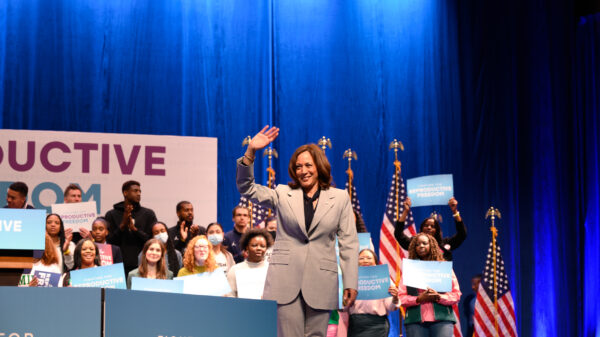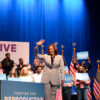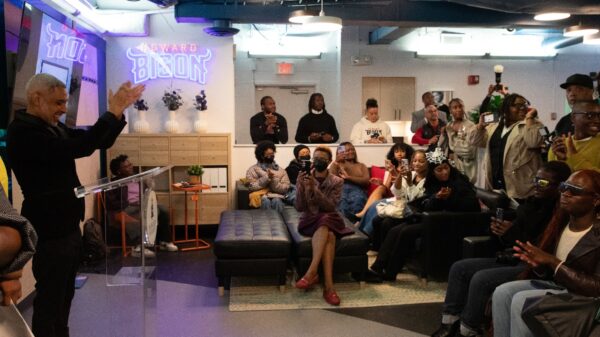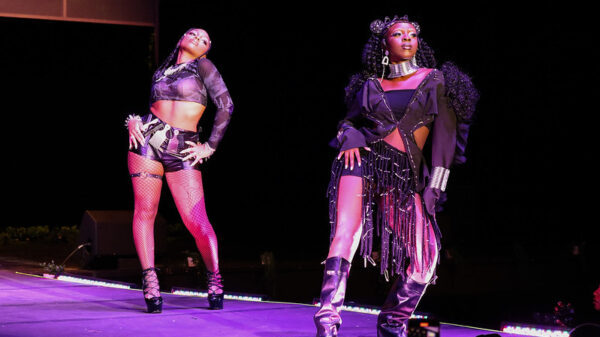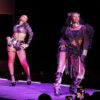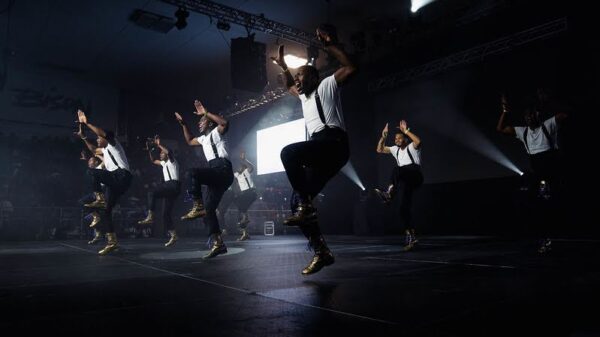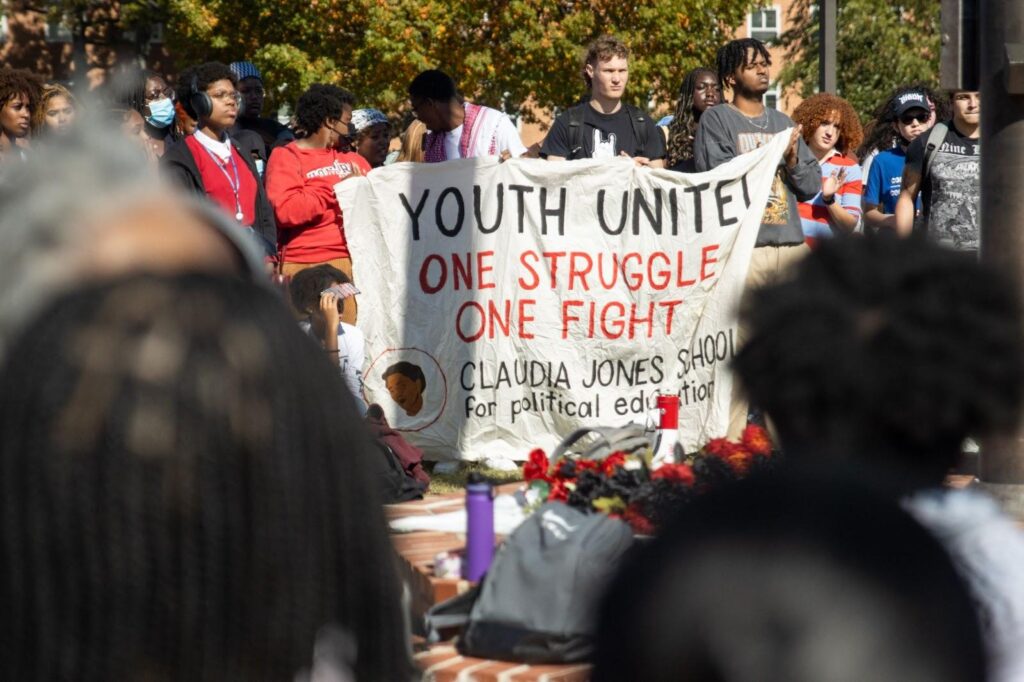
Amid an upsurge of protests on college campuses regarding the Israel-Gaza conflict, Howard University has maintained its standards for protesting and student activism on campus, allowing protests to occur anywhere, according to university officials.
Since the start of the war, numerous private colleges and universities have changed protest policies following scrutiny from advocacy groups, limiting on-campus demonstrations for students. At Howard, free speech is permitted, provided it is in accordance with university regulations.
“Howard University supports peaceful and constructive forms of student protest as a fundamental aspect of free speech and expressions,” Dr. Cynthia Evers, vice president of Student Affairs, said.
Evers said free speech zones, designated specific places on campus where students may exercise their rights to freely express themselves, are not imposed at Howard.
“Students may use their rights to free speech and expression anywhere on campus as long as they are complying with other University policies,” she said. “Take the Yard as an example of a place where our students, faculty and staff exercise their rights to freely express themselves.”
Though peaceful protests are encouraged, Evers said the university has the right to intervene if a protest poses significant safety risks, violates university policies, the law or disrupts campus operations.
While the university has maintained its free speech policies, some students say they still feel unsupported in their efforts and intimidated by the administration.
“The administration sees our protests, and they want to intimidate us into calming it down because it makes a lot more work for them,” Bri Robertson, a freshman international affairs major who has been active in pro-Palestine protests said. “And that’s what we’re trying to do, because if they don’t like what we’re doing, they’re going to have to find ways to amend the problem.”
According to the student handbook, although students retain the right to protest, “acting in a manner that impairs, interferes with or obstructs the orderly conduct, processes or functions of the university” is disruptive conduct and therefore prohibited.
“In certain circumstances, particularly if a protest poses significant risks to safety, violates university policies, law or disrupts campus operations, the university may have to intervene to make our campus and its members safe,” Evers said.
Marcus Lyles, executive director and chief of police at the Department of Public Safety, shared the same sentiment.
“We want students to voice their opinions,” Lyles said in a webinar about campus safety at HBCUs in November 2023. “We have no issue with expressing yourselves as long as it doesn’t present a challenge to campus operations or bring threats or violence to our campus. That’s kind of where we have a line.”
Protest Policies Across Universities
Other universities in the DMV (District of Columbia, Maryland and Virginia) area take a similar stance on student protest. The University of Maryland, a public university in College Park, Maryland, supports freedom of expression, provided that university regulations are followed. These regulations prohibit students from “blocking or otherwise interfering with” campus activities such as classes, pedestrian traffic and programs hosted by the university.
Meanwhile, some private universities have taken measures to limit or ban student protests.
Public universities’ regulations are required to be in accordance with constitutional guidelines like the First Amendment, whereas private universities are free to restrict students’ speech as they see fit. Consequently, some private universities limit or ban student protests.
American University, a private university in Washington, D.C., banned all indoor protests following backlash from multiple Jewish advocacy groups over pro-Palestine student protests. The university’s president, Sylvia Burwell, said this measure was taken in response to “recent events and incidents on campus [that] have made Jewish students feel unsafe and unwelcome.”
In November 2023, George Washington University, another private university in Washington, suspended its branch of Students for Justice in Palestine for 90 days after they had “anti-Israel library demonstrations.”
Georgetown University, despite having not taken official action to restrict student protests, said “the University may reasonably regulate the time, place and manner of expression to ensure that it does not disrupt the ordinary activities of the institution.”
Tips for Safely Protesting on Campus
Experts say there are ways to make student protests more effective and safer for those demonstrating on campus. Thomas Aiello, a professor at Valdosta State University who specializes in history and African studies, believes in four guidelines for student protesters.
The first guideline is to seek help and support from members of the faculty.
“The faculty are your allies,” Aiello said. “It’s not fair, but the reality is the more letters you have behind your name, the more of a big deal it is to attack you. And so when you get your professors to support your protest and get out there with you, it provides a buffer from potential violence just because of the fact that society deems those letters important.”
The second guideline, Aiello said, is to have a clear sense of purpose and end goals. Aiello also emphasized that a specific protest should “present a solution that the people you’re protesting against can use. That way, if they don’t, you can say, well, we have the answer. You’re just not doing it.”
The third guideline is to stay united, both physically and ideologically, he said.
“What we see in every rights movement that has ever happened is that ultimately schisms form,” Aiello said. “People don’t get along. People want to be in charge. People have different ideas about strategy. Those discussions are inevitable, but they should happen in private, and publicly everybody should speak with the same voice.”
Chloe Johnson, another freshman student protestor, agreed.
“I think unity plays a massive role in any protest,” she said. “If the way that you feel as a collective isn’t unanimous, then you can’t really get anything done together, because it’s all about believing in the same thing, and that’s how you prevent discord from happening.”
Aiello, also advised student protesters to protest in large groups, if possible, to minimize the threat posed by the police or security.
“Of course, there’s always inherently a risk with protesting, especially as black students,” he said. “But making sure that everybody stays together helps. Dealing with one large group makes it a far, far higher stakes game for anybody trying to interrupt the protest with violence.”
The fourth guideline is to know what campus policy is. Aiello said that student protesters should always be informed on what is and is not prohibited. That way, the protest is less likely to be unjustly broken up.
“I wouldn’t just look at the handbook,” he said. “I would print off the relative pages and have somebody bring them with you. That way, if you’re not breaking any rules, they can’t do anything.”
Timothy L. Jenkins, co-founder of the Student Nonviolent Coordinating Committee (SNCC), said protests are only one part of dismantling institutional racism in America.
“It can’t be solved by just a demonstration of outrage. It has to have systemic change.” Jenkins said. He also spearheaded SNCC’s voter registration campaigns and the usage of protest ballots in Mississippi law to advocate for Black representation in both elected and electoral bodies.
Jenkins recommended students partner with organizations based on shared goals, look closely at the existing power structures and wield the power of information to challenge social norms.
“Whenever you are interested in social change, you have to recognize that you have to buck existing structures of power,” he said. “I don’t think students should be shy of getting into controversy with power structures with their fellow students and with organized groups because that’s a part of what you have to do to express your own opinion.”
Copy edited by Jalyn Lovelady


